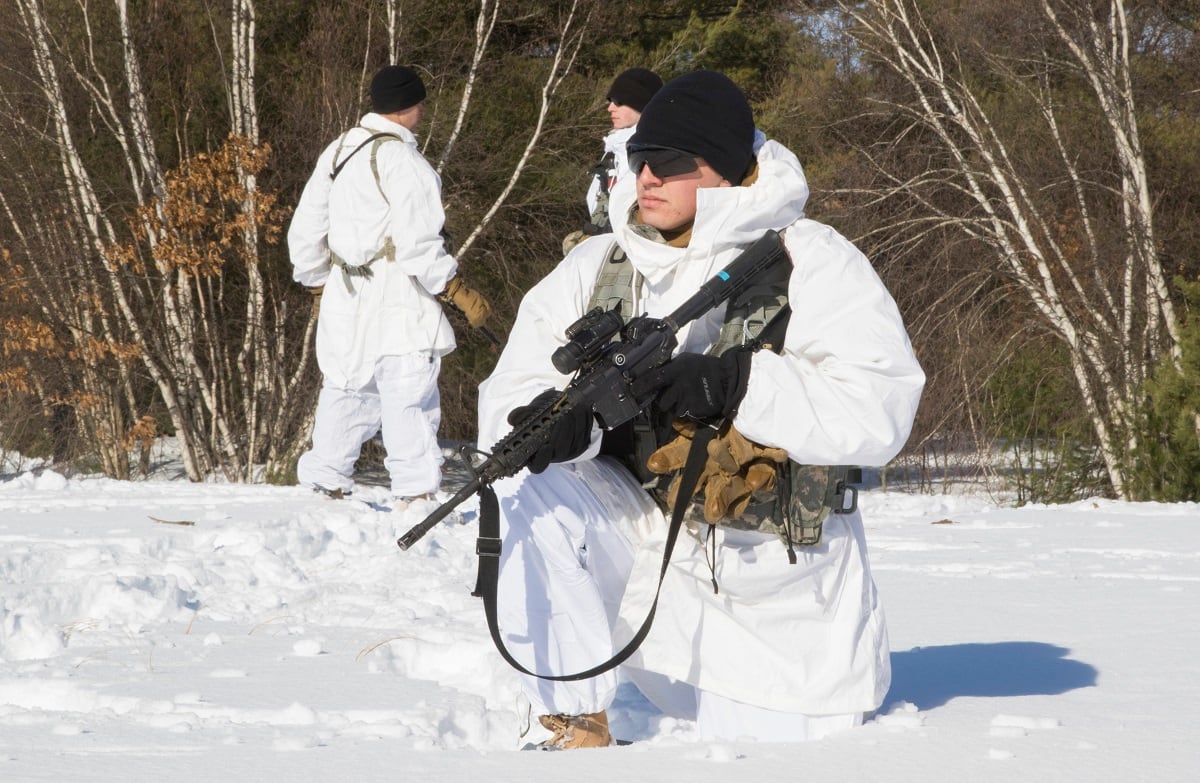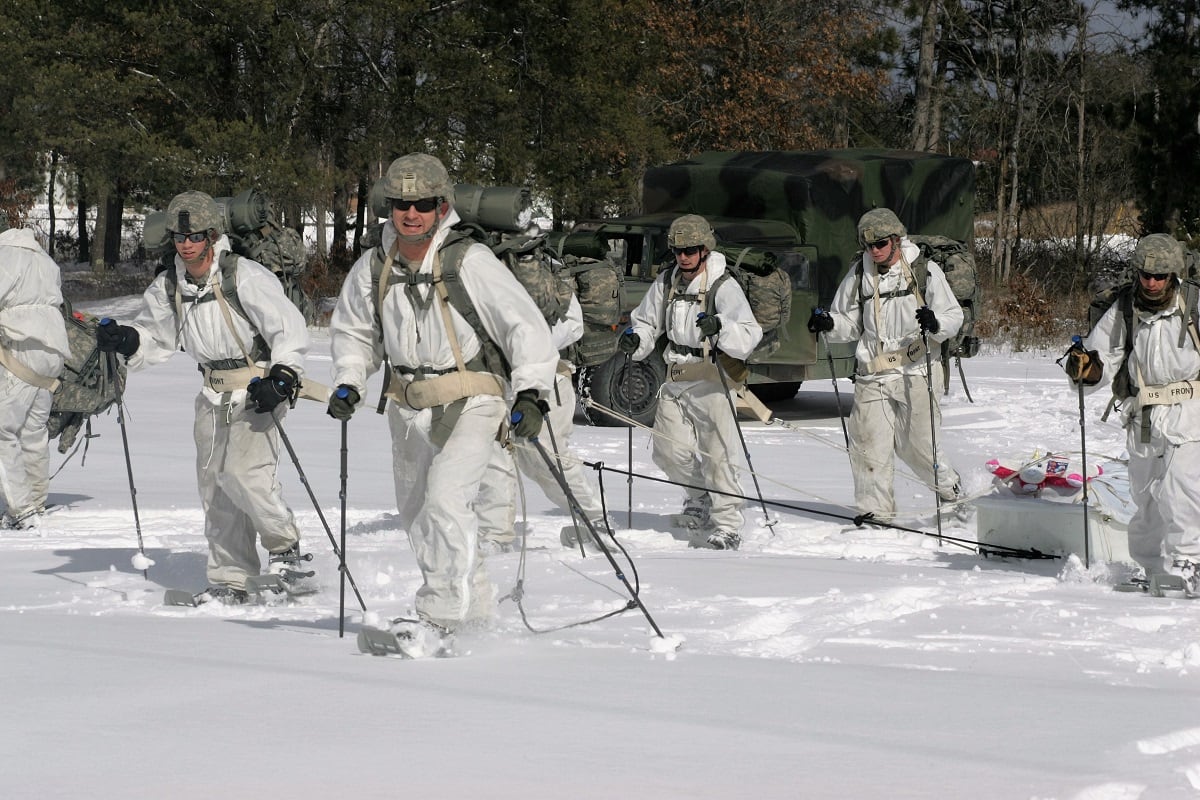The old “Mickey Mouse” cold weather boot, a rubber relic from the 1960s still in service with both soldiers and Marines, could be replaced if a recent Army posting proves fruitful.
The aim is to reduce the weight and bulk of the boot, which earned its nickname for its white, bulbous size, like the famed cartoon rodent’s feet. The boot does also come in black, and for a time, they were also called “Bunny Boots” by troops.
Earlier this month, U.S. Army Contracting Command posted a special notice on fbo.gov, a federal business opportunities website. The notice detailed the procurement of 150 pairs of three models of an Extreme Cold Weather Overboot to replace the classic version, called the Extreme Cold Weather Boot.
And the post author noted the long-standing boot’s deficiencies.
“The current Extreme Cold Weather Boot (ECWB) has remained largely unmodified since the 1960s and utilizes outdated technology and manufacturing processes which are no longer available within the U.S.,” according to the notice.
“Additionally, the ECWB is heavy, bulky, and difficult to pack/carry when conducting dismounted operations,” according to the notice.
The white, bulky boot provides a vacuum-type seal that maintains foot warmth in temperatures down to -60 Fahrenheit. So much so that troops often soak their socks with sweat while standing in banks of snow.
RELATED

Researchers at the U.S. Army Natick Soldier, Research, Development and Engineering Center along with Product Manager-Soldier Clothing and Individual Equipment, “will commence an effort to evaluate insulated overboot solutions with the potential to offer similar environmental protection at reduced weight/bulk.”
The boot was developed during the Korean War to combat the extreme cold weather soldiers and Marines faced in fierce fighting during that war.
Minor modifications occurred early in its development, including an air valve being added in the 1960s for use in high altitudes, whether on mountainsides or in aircraft.
Todd South has written about crime, courts, government and the military for multiple publications since 2004 and was named a 2014 Pulitzer finalist for a co-written project on witness intimidation. Todd is a Marine veteran of the Iraq War.




